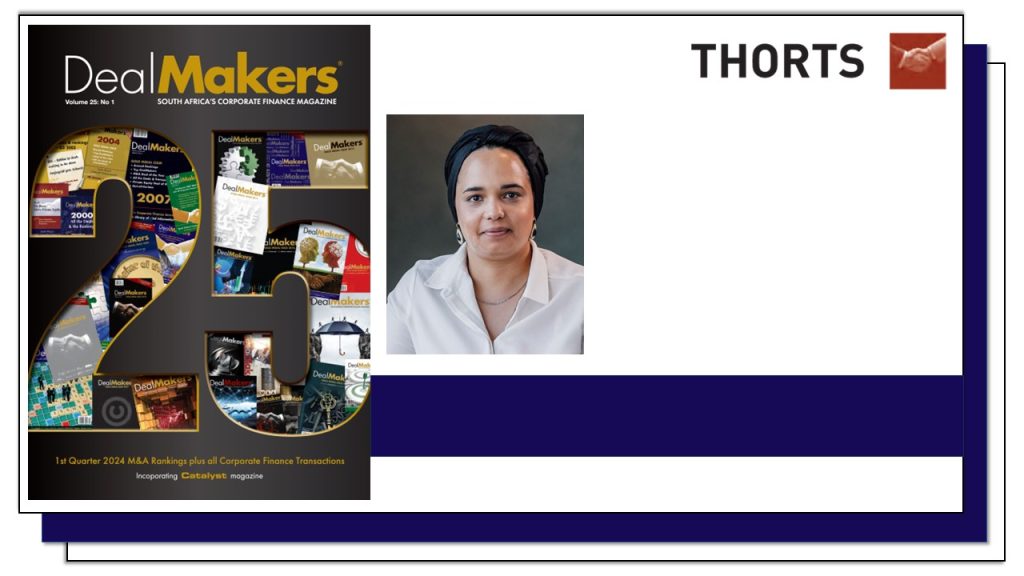Developed countries continuously seek growth and expansion into new markets, and Africa seems to be the right fit. For that reason, South Africa’s more sophisticated financial and banking sector allows foreign investors to see South Africa as a gateway into Africa; they want to invest in Africa through South Africa. On the other hand, some innovative South African companies want to expand and grow their businesses, but they realise that the South African market is too small. Those South African companies are again looking at developed countries for growth and expansion into new markets. For these reasons, one must consider the consequences of cross-border investment, whether inbound or outbound.
The Exchange Control Regulations govern the South African exchange control regime. While control over South Africa’s foreign currency reserves, as well as the accruals and its spending, is vested in the National Treasury, the Regulations are enforced by the Financial Surveillance Department (FinSurv) of the South African Reserve Bank (SARB), with the assistance of authorised dealers (the South African banks). As the name suggests, authorised dealers are authorised by FinSurv to deal in foreign exchange transactions. Their authority is limited to the transactions under the Regulations, read with the Authorised Dealer Manual. For any other transaction, South African residents must obtain SARB approval.
Key exchange control considerations for mergers and acquisitions between South Africa and foreign persons and entities are highlighted below.
The South African share acquisition
When a foreign person or entity acquires shares in a South African company, those shares are regarded as “controlled securities”, which are strictly controlled by the Authorised Dealers. Authorised Dealers exercise control over the shares owned by a foreign person or entity by placing a “non-resident” endorsement on them. While the requirement of endorsement applies equally to South African listed and unlisted companies, in practice, only unlisted companies’ shares owned by foreign persons or entities are endorsed as “non-resident”. Without the endorsement, the South African company will not be allowed to repatriate dividends to its foreign shareholders offshore, and they may not transfer the proceeds from the sale of controlled securities by the foreign person or entity abroad, nor credit it to a Non-Resident Rand account.
The foreign share acquisition
When a South African entity acquires shares in a foreign entity, it requires the prior written approval of the Authorised Dealer (or SARB for investments exceeding R5bn per entity per calendar year). For statistical purposes, the South African entity must acquire at least 10 per cent of the voting rights of the foreign entity. Once approved, the South African entity may increase its equity interest and/or voting rights, but when its interest dilutes, it must be reported to FinSurv via the Authorised Dealer. A South African entity investing offshore should also note that passive real estate investments focused on achieving long-term appreciation of asset values with limited day-to-day management of the asset itself are excluded from this dispensation. Where the Authorised Dealer is in doubt and/or the conditions noted above are not met, it will refer the South African entity’s request to invest offshore to FinSurv for approval.
When the South African entity decides to sell the shares in a foreign entity, the net sale proceeds must be repatriated to South Africa within 30 days from the date of the sale, under advice to FinSurv via the Authorised Dealer. In the specific instance where the South African entity sells its shares in a foreign entity to a South African third party, FinSurv’s prior written approval is required.
“Loop” structures
Before 1 January 2021, South African individuals and entities required the prior written approval from FinSurv to invest in South Africa through a foreign structure. For example, a “loop” structure is where a foreign trust with South African resident beneficiaries holds shares in a South African company (South Africa – Foreign Trust – South Africa). Another typical example is a foreign company with South African shareholders and a South African subsidiary.
Now, South African individuals and entities with authorised foreign assets may invest in South Africa through a foreign structure, provided that the investment is reported to the Authorised Dealer when the transaction is finalised, and it must be accompanied by an independent auditor’s written confirmation (or suitable documentary evidence) that the transaction is concluded on an arm’s length basis and for a fair and market-related price.
Once reported, the South African target entity must submit annual progress reports to FinSurv via the Authorised Dealer.
Remember
Exchange control compliance should form part of every legal and regulatory due diligence check for any cross-border merger or acquisition, as South African residents may face hefty penalties for contraventions of the Regulations. Therefore, exchange control compliance must form part of the legal and regulatory due diligence check to ensure that unregularised transactions are regularised by FinSurv.
Megan Landers is a Senior Manager: Cross Border | AJM Tax.

This article first appeared in DealMakers, SA’s quarterly M&A publication.
DealMakers is SA’s M&A publication.
www.dealmakerssouthafrica.com



